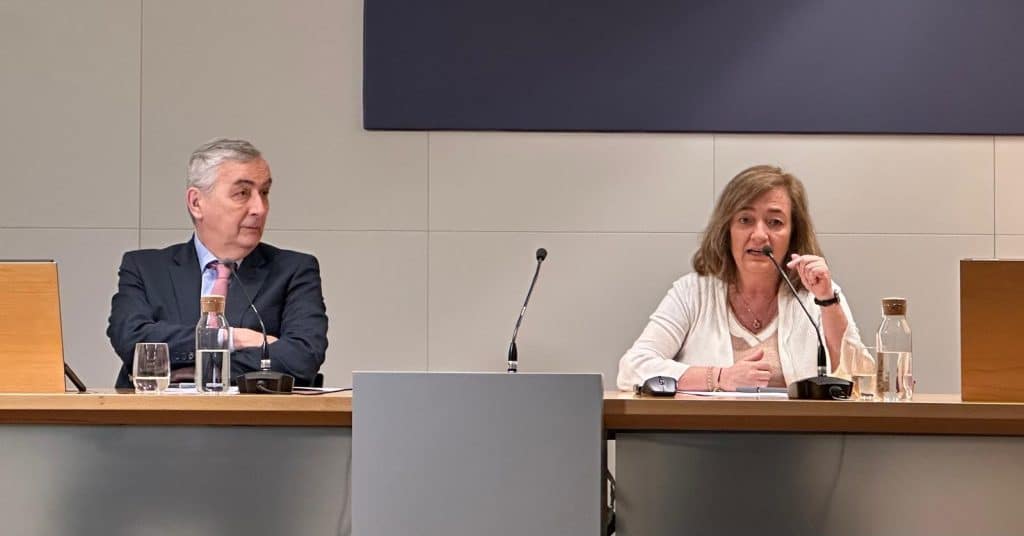
The President of the Independent Authority for Fiscal Responsibility (AIReF), Cristina Herrero, today reviewed the situation and outlook for the Spanish economy at a workshop organised by the Fundación de Cajas de Ahorros (Funcas) [Spanish Foundation of Savings Banks], which was also attended by the Director of Economic Outlook at Funcas, Raymond Torres; the professor at Rey Juan Carlos University and senior economist at Funcas, Desiderio Romero; and the Professor of Applied Economics at the University of Vigo and senior economist at Funcas, Santiago Lago Peñas.
Cristina Herrero reviewed the institution’s forecasts, updated in the Report on the Initial Budgets of the General Government published on April 11th. In that report, AIReF estimates GDP growth of 2% in 2024 which slows to 1.5% in 2028 and continues to converge with the economy’s long-term potential (1.3%). On the fiscal front, AIReF forecasts a public deficit of 3% of GDP in 2024 which, in the medium term, stabilises at around 3.2% of GDP. Against this backdrop and after a significant reduction over the last three years, AIReF expects the debt ratio to stabilise in the medium term at around 105% of GDP.
These debt forecasts, as the President explained, are incompatible with the new European fiscal governance framework, which requires countries with debt above 60% of GDP to submit a medium-term structural-fiscal plan (2025-2028) in September that guarantees debt sustains a downward path in the 10 years following the adjustment and that the deficit is below 3% of GDP. According to AIReF’s calibration exercises, the annual adjustment could stand at 0.63% of GDP if it is implemented over four years or 0.43% per annum if the deadline is extended to seven years.
This year all the General Government (GG) sub-sectors must present their first budgets consistent with this fiscal plan. AIReF considers that drawing up this plan will pose a major institutional challenge given the high level of decentralisation of the Spanish economy and the asymmetry in the control of the key variables of the new framework: debt and primary expenditure net of measures. In Spain, the Central Government accounts for 74% of public debt while the Autonomous Regions (ARs) account for 32% of public expenditure, with health and long-term care under considerable pressure from the ageing population.
In this regard, AIReF made recommendations in its April report to the GG with a view to drawing up the plan. Specifically, it recommended that the Central Government, the ARs and several Local Governments should monitor their budget execution by adopting measures to correct the increase in eligible expenditure and avoid a structural deterioration of their accounts in the medium and long term. In addition, it recommended that the Ministry of Finance initiate dialogue and work with all GG authorities to draw up a structural-fiscal plan.





